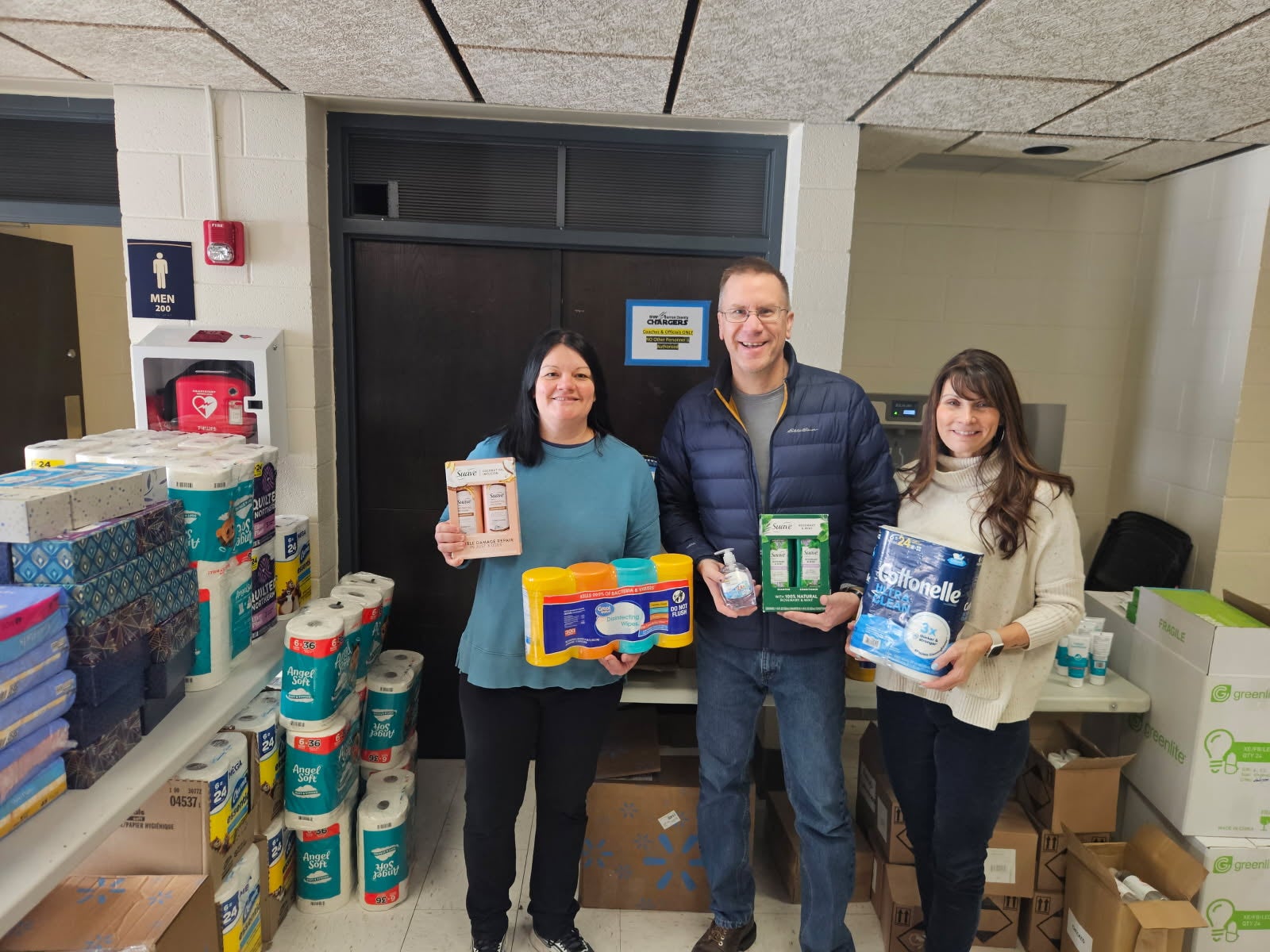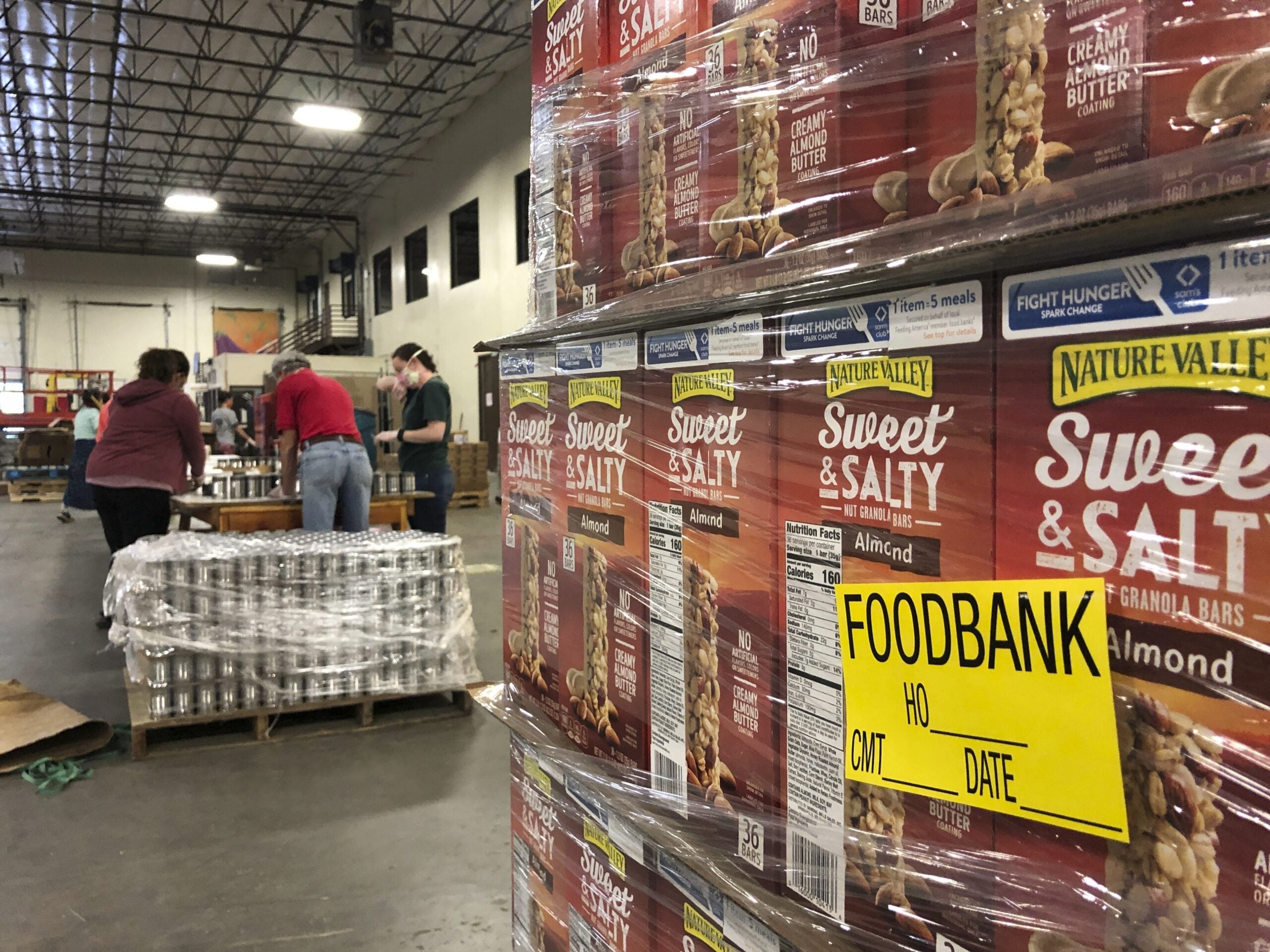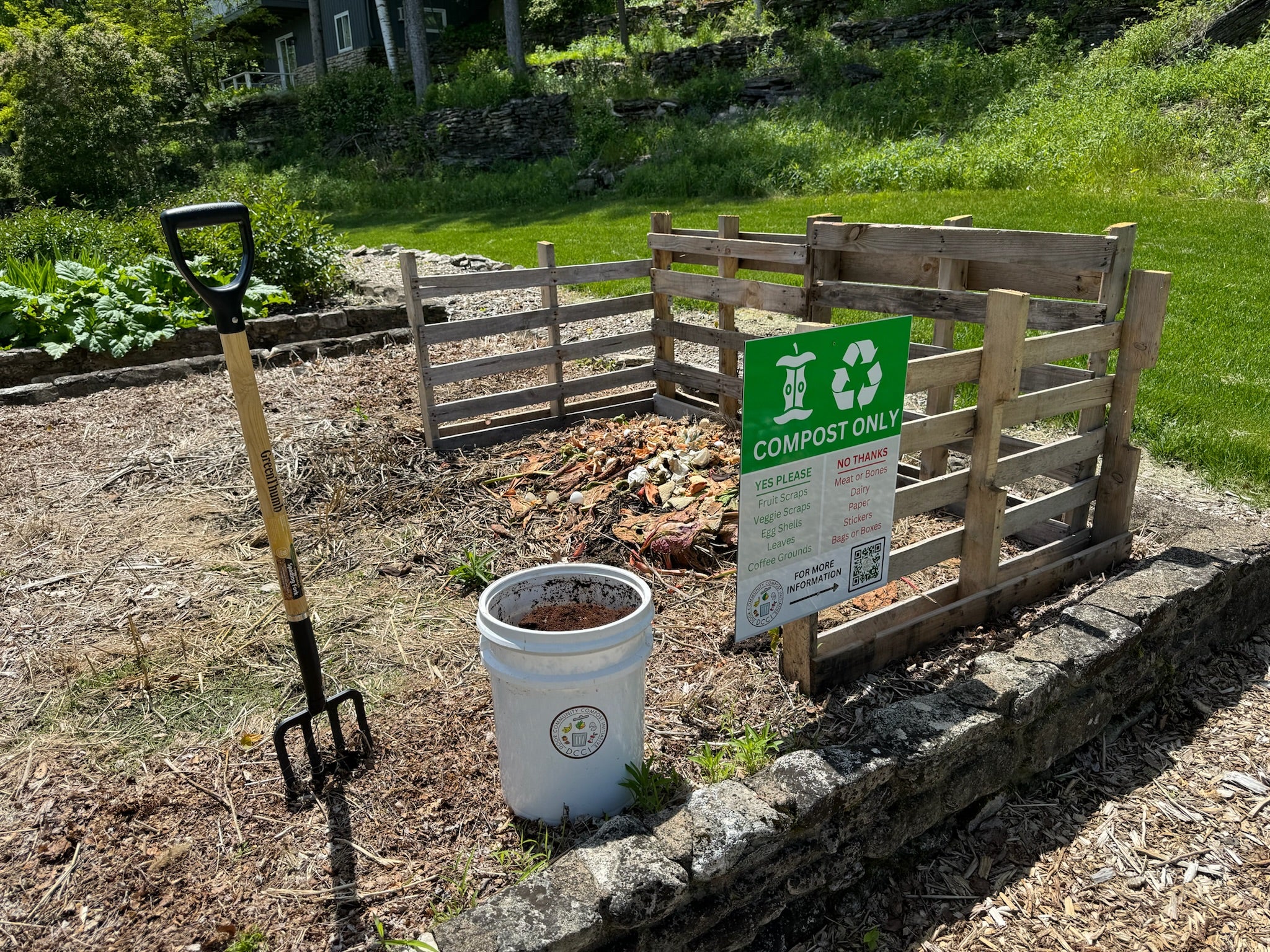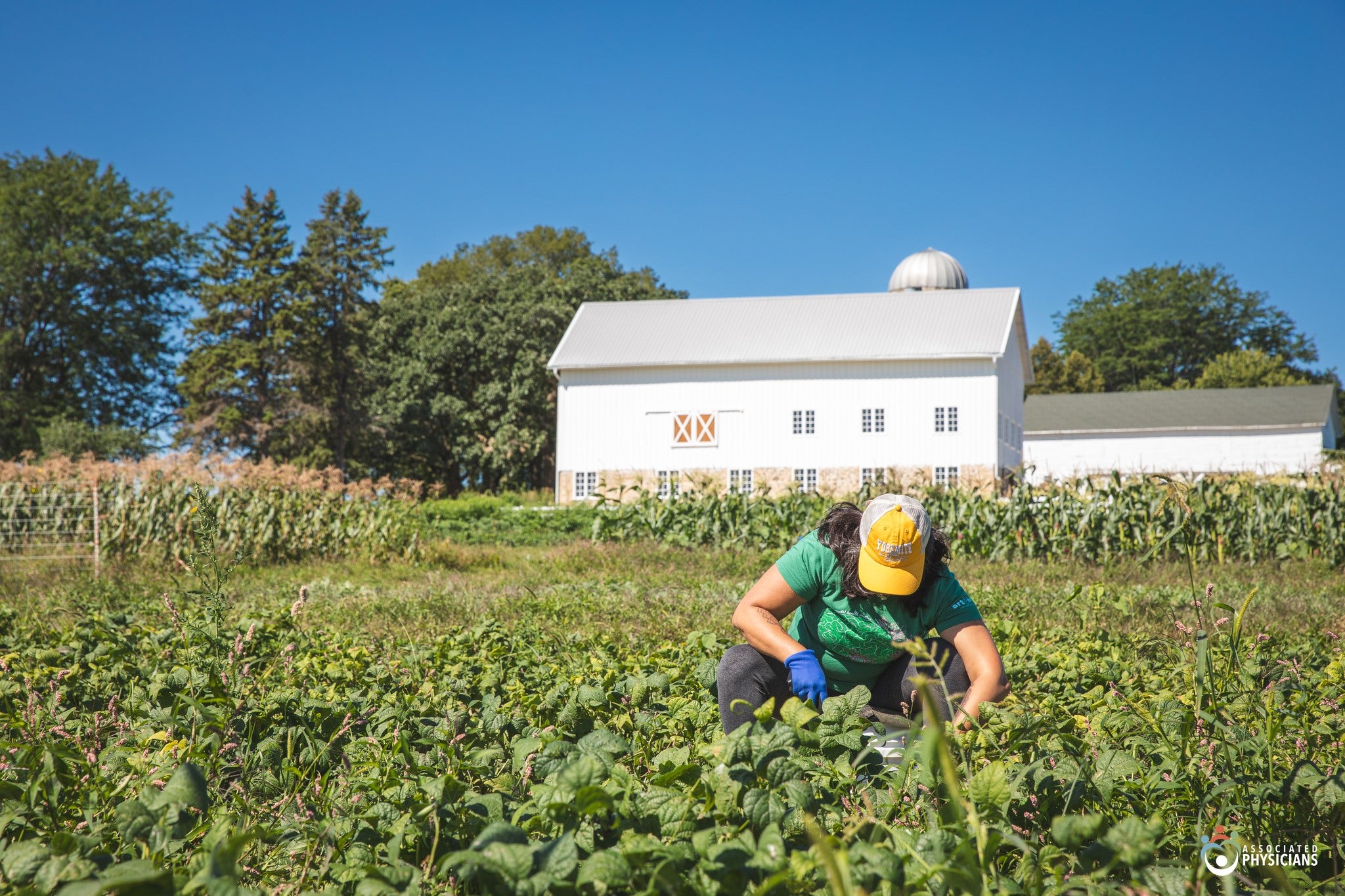In May 2017, a tornado ripped through Barron County, destroying hundreds of homes and businesses.
Agencies from across the county united to help provide relief. The response sparked a question for Sarah Turner, a public health specialist, who was involved in the effort.
“Why wait for [disaster] to happen?” she told WPR.
News with a little more humanity
WPR’s “Wisconsin Today” newsletter keeps you connected to the state you love without feeling overwhelmed. No paywall. No agenda. No corporate filter.
Turner’s epiphany led Community Connections to Prosperity, a coalition of service groups in Barron County, to decide to be more proactive about helping people in the community.
The coalition includes members from the Barron County Sheriff’s Department, Maranatha Evangelical Free Church, Boys & Girls Club, the Department of Health & Human Services, the Aging & Disability Resource Center and the Mayo Clinic Health System. Three of the coalition’s steering committee members recently spoke to WPR’s “Wisconsin Today” about the vision for the coalition, which hopes to make better use of data to understand the extent of poverty in Barron County.
Turner said the needs people have aren’t always obvious in Barron County. “Like a lot of rural areas, you don’t see homeless people sleeping on the streets,” Turner said. “You don’t see the people lined up at the food pantries.”
Barron County coalition hosts multi-resource events
The coalition relies on donations to focus on three priorities: clothing, food and housing assistance. Turner said the coalition hosts events in northwestern Wisconsin throughout the year to give away clothing and food to those in need.
“Twenty-five to 30 agencies [meet] quarterly under one roof to help meet people’s needs on site,” she said.
Last year, three events were held to provide on-site assistance with caregiving, children, housing, finances, mental health, transportation and more.
“It’s not like a health fair,” she said. “We make sure there’s a plan in place — appointments, transportation — so when people leave, those needs are met.”

According to Turner, 2024 marks the first time Community Connections to Prosperity collected data to measure its impact on the 46,000 people living in Barron County.
Last year, more than 400 people received support through the multi-agency events.
About 83 percent of those who attended earn less than the Federal Poverty Level. In 2024, the poverty threshold for an individual under the age of 65 was $15,650 annually. For a family of four, the threshold was $32,355, according to U.S Census data.
Alisa Lammers is the caregiver specialist and health promotions coordinator for Barron County’s Aging & Disability Resource Center. She spoke with “Wisconsin Today” about her role as a steering committee member, which is to share the perspective of older adults and adults living with disabilities.
“They often have unique needs and perspectives,” she said.
Lammers agrees with Turner that transportation is a barrier for Barron residents experiencing poverty. “If people don’t have transportation — even if the resources are available — they’re not able to get their needs met,” Lammers said.
Steering committee member Jenny Jorgenson, who works with Mayo Clinic’s community engagement team in northwest Wisconsin, said she develops and leads projects to better meet the needs of people living in poverty.
“Within our coalition we’re also focusing on the working poor,” she said. “People that are visiting our food pantries and perhaps homeless, but they’re [living] in their car with their family.”
90-day projects initiate tiny home shelters, free laundry services, food recovery programs
Jorgenson said the coalition launches 90-day projects throughout the year to try different approaches to food, clothing and housing challenges. If successful, the initiatives continue.
She said last year the Salvation Army placed two tiny homes in Barron County. “Those will be used to help unhoused residents have temporary shelter from the elements,” Jorgenson said.
Last September, the coalition launched the Loads of Love program in partnership with Bethany Lutheran Church of Rice Lake. The program provides quarters, soap and dryer sheets to people needing free laundry services.
Next month, Community Connections to Prosperity will begin its next 90-day project geared to address food insecurity and food recovery.
“It’s working with community partners to source food that might otherwise go in the dumpster because it’s nearing its expiration date,” Lammers said. “It’s finding that food and then dispersing it to people in need.”
She said they hope this project will bring awareness to food insecurity and recruit partners who are interested in helping.
“Your neighbor down the block has extra zucchini in their garden at the end of the growing season,” she said. “How can they get that out to people who are experiencing food insecurity?”
‘Feed the Future’ fundraiser to address hungry children
In May, the three-day fundraising event, “Feed the Future,” — which will include a golf tournament, music, food, games and more — will raise money to support a program that gives K-12 school children in Barron County a backpack full of food to take home on weekends for their families.
Jorgenson said the coalition hopes the event in May can raise $100,000 to support the school districts offering weekend backpack programs.
“We met with many of our backpack program partners and realized their funding is based on either private donations or business donations,” she said. “Some are just getting by.”
Community health assessment identifies future priorities for Barron County
Turner said the coalition is looking for more than just band-aids to these serious problems.
“You’re hungry — here’s some food. You’re in need of housing — here’s a tiny home. But we need to look at the long haul,” Turner said.
All three steering committee members pointed to the latest county-wide community health assessment as an additional way to identify the needs of Barron County.
Barron County Public Health leads the assessment every three years to determine the region’s health priorities for the next three to five years.
A community survey given last summer recently revealed what residents identify as their most concerning health outcomes and behaviors.
The top three priorities for 2025-2027 are mental health, substance abuse and access to health services.
“It’s related to people worrying about where to live, how they’re getting work, how they’re getting their kids to their next medical appointment — those are all preventative measures,” she said.
Jorgenson said having county-wide partnerships, like the Community Connection to Prosperity coalition, means more people can receive the support they need.
“We certainly can’t help everyone with their health care needs, but within our communities we can partner and collaborate with organizations who have that same mission,” she said.






